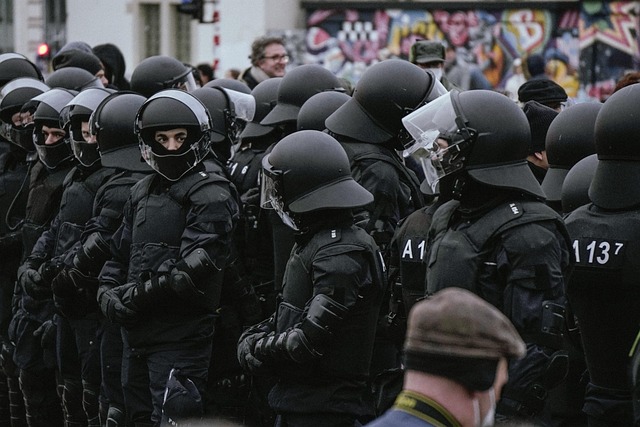The effectiveness of plea bargaining in reducing caseloads is a strategic approach within criminal law, where prosecutors negotiate pleas with defendants, leading to more manageable case volumes. This process balances the need for justice and efficiency, streamlining procedures fairly and saving time/resources. While criticized for potential unfair outcomes, particularly in white-collar crimes, well-regulated plea bargaining practices can uphold equity and accountability, making it a vital component of global criminal justice systems. Early plea discussions and creative problem-solving ensure efficient case resolutions, preserving the integrity of the legal process.
“Unraveling the intricacies of criminal law cases, this article offers a comprehensive guide to understanding the core elements that drive legal proceedings. From the basics of criminal law to the intricate process of plea bargaining, we explore its significance in the justice system.
Discover the double-edged sword of plea bargaining—a strategy known for both its advantages in reducing caseloads and the criticisms it faces. Learn about effective strategies for plea bargaining and case management, providing valuable insights for legal professionals.”
- Understanding Criminal Law Cases: An Overview
- The Role of Plea Bargaining in the Justice System
- Advantages and Criticisms of Plea Bargaining
- Strategies for Effective Plea Bargaining and Case Management
Understanding Criminal Law Cases: An Overview

Criminal law cases are complex legal matters that involve accusations of criminal conduct, with potential consequences ranging from fines to imprisonment. These cases navigate a intricate web of laws and regulations designed to protect society while ensuring due process for the accused. Understanding the intricacies of criminal law requires a grasp of various procedures, including investigations, arrests, charging, pretrial detention, and ultimately, trials.
One significant aspect that plays a crucial role in the criminal justice system is the effectiveness of plea bargaining. This strategy, which involves negotiating a plea agreement between the prosecution and defendant, offers an alternative to lengthy jury trials. By avoiding indictment, both corporate and individual clients can mitigate potential sentences and reduce caseloads for overburdened courts. The success of plea bargaining lies in its ability to balance justice with efficiency, though it’s important to note that this process must be conducted fairly to uphold the integrity of the legal system.
The Role of Plea Bargaining in the Justice System

Plea bargaining plays a pivotal role in modern criminal justice systems, serving as a crucial mechanism to manage caseloads and resolve cases efficiently. This practice involves defendants pleading guilty to lesser charges or accepting a negotiated sentence in exchange for a reduced prosecution case. The effectiveness of plea bargaining in reducing caseloads is well-documented, with numerous jurisdictions attesting to its unprecedented track record. By allowing prosecutors to focus their resources on the most serious cases and ensuring defendants receive a fair, albeit often reduced, punishment, this process achieves extraordinary results throughout all stages of the investigative and enforcement process.
Advantages and Criticisms of Plea Bargaining

Plea bargaining is a critical component of criminal justice systems worldwide, offering several advantages in managing caseloads and resolving cases efficiently. One of its key benefits is the ability to significantly reduce backlog and workload for overburdened courts, which can lead to faster justice delivery. This process allows for the negotiation of a plea agreement between the prosecution and defense, often resulting in a guilty plea from the defendant in exchange for a reduced sentence or charges dropped. By doing so, it avoids the time-consuming and costly trial process, benefiting both the judicial system and defendants who may face less severe consequences.
Despite its effectiveness in reducing caseloads, plea bargaining has faced criticism. Some argue that it can lead to unfair outcomes, especially in cases involving white-collar and economic crimes, where the accused might avoid indictment through plea deals. Critics also contend that the process may undermine the integrity of the justice system by encouraging guilty pleas instead of aiming for truth and fairness. However, proponents maintain that well-structured plea bargaining practices can foster a balance between efficiency and equity, ensuring that resources are allocated effectively while still upholding the principles of just punishment and accountability within the philanthropic and political communities.
Strategies for Effective Plea Bargaining and Case Management

The effectiveness of plea bargaining in reducing caseloads is a strategic approach that plays a significant role in criminal law cases. By offering alternatives to trial, prosecutors can negotiate pleas, resulting in a more manageable volume of cases. This process involves careful case management, where attorneys and judges collaborate to streamline procedures and ensure fairness. One key strategy is early plea discussions, allowing for the resolution of charges before trial, which benefits both parties by saving time and resources.
Moreover, successful plea bargaining often hinges on creative problem-solving. For instance, in white collar and economic crimes cases, a comprehensive understanding of the client’s situation can lead to innovative solutions. A skilled white collar defense attorney might advocate for alternative sentences or agreements that address underlying issues, thereby achieving extraordinary results while maintaining the integrity of the legal process.
The article has explored various facets of criminal law cases, with a particular focus on plea bargaining as a key component of the justice system. We’ve seen how plea bargaining, while offering advantages like reduced caseloads and efficiency, also faces significant criticisms regarding fairness and potential discrimination. To maximize its effectiveness, case management strategies that prioritize transparency, equality, and due process are essential. By understanding these dynamics, legal professionals can navigate complex criminal law cases more effectively, ultimately contributing to a fairer and more balanced justice system.






